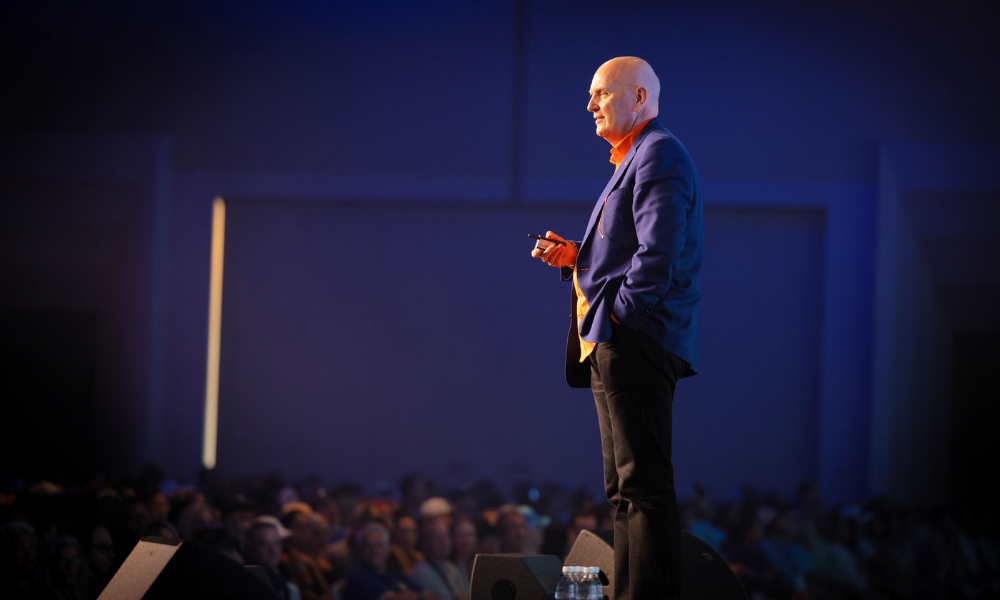
World-renowned HR author Chester Elton talks about employee anxiety in a stressful world

Employee anxiety has been Chester Elton’s bread and butter for decades – he helps companies better engage with their employees and has been called the “Apostle of Appreciation” by Canada’s Globe & Mail.
Elton sat down with HRDTV to discuss how do deal with employee anxiety in a multi-generational workplace.
His book Anxiety at Work helps HR leaders deal with increasing levels of anxiety at work. A condition, Elton said, that was exacerbated by the pandemic, and we have yet to go back to pre-COVID levels.
One of the shocking findings of his research, he shared, is that employees in their 20s have experienced a 42% jump in workplace anxiety since before the pandemic: “Your young, new workers that you’re bringing in to fuel your business and stock your next leadership level. So that was really shocking,” he said.
Plus, 75% of Gen Z workers and 50% of millennials said they had changed jobs because of a mental health issue.
However, the most important statistic Elton took from his research was that 90% of employees didn’t feel safe talking to their immediate supervisor about mental health.
“You have all these dynamics going on, all this happening, production being down, people feeling unsafe at work, and yet they won’t talk about it. And of course, the reason why is, it’s a taboo subject,” said Elton.
“I can talk about a broken leg…I need some time to rehab. If you talk about mental health, what’s the message? I’m weak. I can’t take the pressure.”
Elton shared that it was his millennial son who inspired him to write about mental health, when the younger man told him that when his generation asks, “How are you?” what they mean is “How are you managing your anxiety?”
“And he was right,” Elton said. “We started to talk to more clinicians. We started to talk to a lot of business leaders. People are getting better – leaders in particular are getting better about listening and about watching for changes in behavior.”
This change can be slow to come for some “baby boomer leaders” he said, whose modus operandi might be to “take a minute, calm down and get back in the game.” It’s a strategy that doesn’t work but is still the go-to for many leaders today, he said.
“The number one cause of anxiety is uncertainty,” Elton said. “Employees want to know, how are we doing as a company? Where are we going? How am I doing? And do I have a future here?”
Answering these questions once per year is not enough, he stressed. To address anxiety due to uncertainty in employees, two key points for HR professionals to practice are listening and communication, and to tailor these practices to each individual; knowing which employees need a weekly check-in, a monthly check-in, or an annual review will go a long way in helping HR ease employee anxiety.
Lastly, Elton shared that gratitude is a huge tool for lessening employee anxiety. Implementing traditions and rituals that foster a sense of gratitude among workers is hugely beneficial, as is leaders showing it towards their employees.
“You can’t be anxious and be grateful at the same time,” he said. “What programs and what tools have you given managers to celebrate the little things that go right, to build that momentum, to getting the big things done that keep your people in that positive state of mind.”
“HR’s responsibility isn’t just at work,” Elton concluded. “It’s not just, make me a better worker bee. It’s, help me be a better person.”